Preceded by the vision of film director Peter Greenaway, by studies and restoration works, the election of Carlo Azeglio Ciampi as President of the Republic marks the moment of critical and popular revival for the Vittoriano: in 2019 it became one of the most visited in Italy
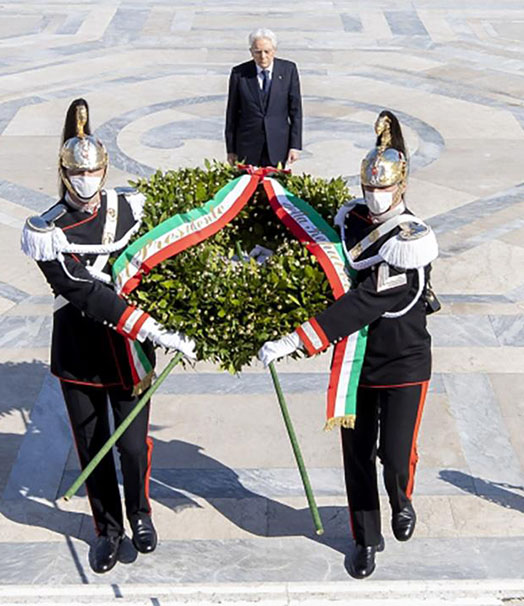
In 1987, just when the Vittoriano was experiencing its darkest moment, British director Peter Greenaway set The Belly of an Architect there. Through the eyes of the protagonist of the film, Stourley Kracklite, an imaginary yet likely American architect interpreted by Brian Dennehy, Greenaway offered a different vision of the monument, establishing a bridge between its designer, Giuseppe Sacconi, and greats of the past such as Giovanni Battista Piranesi and Étienne-Louis Boullée.
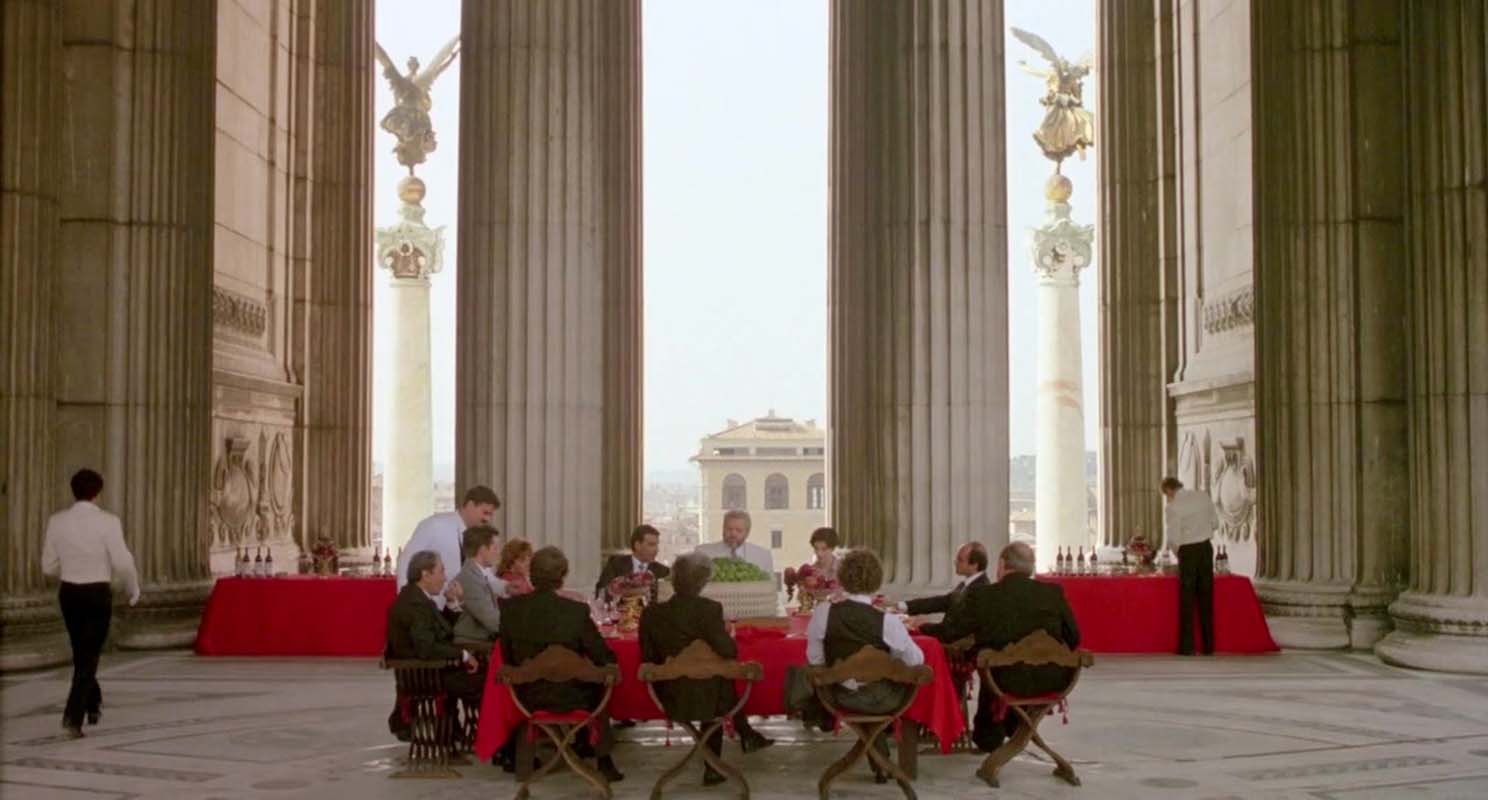
Scene from The Belly of an Architect by Peter Greenaway, 1987: view of the central portico with the winged victories in gold-plated bronze in the background
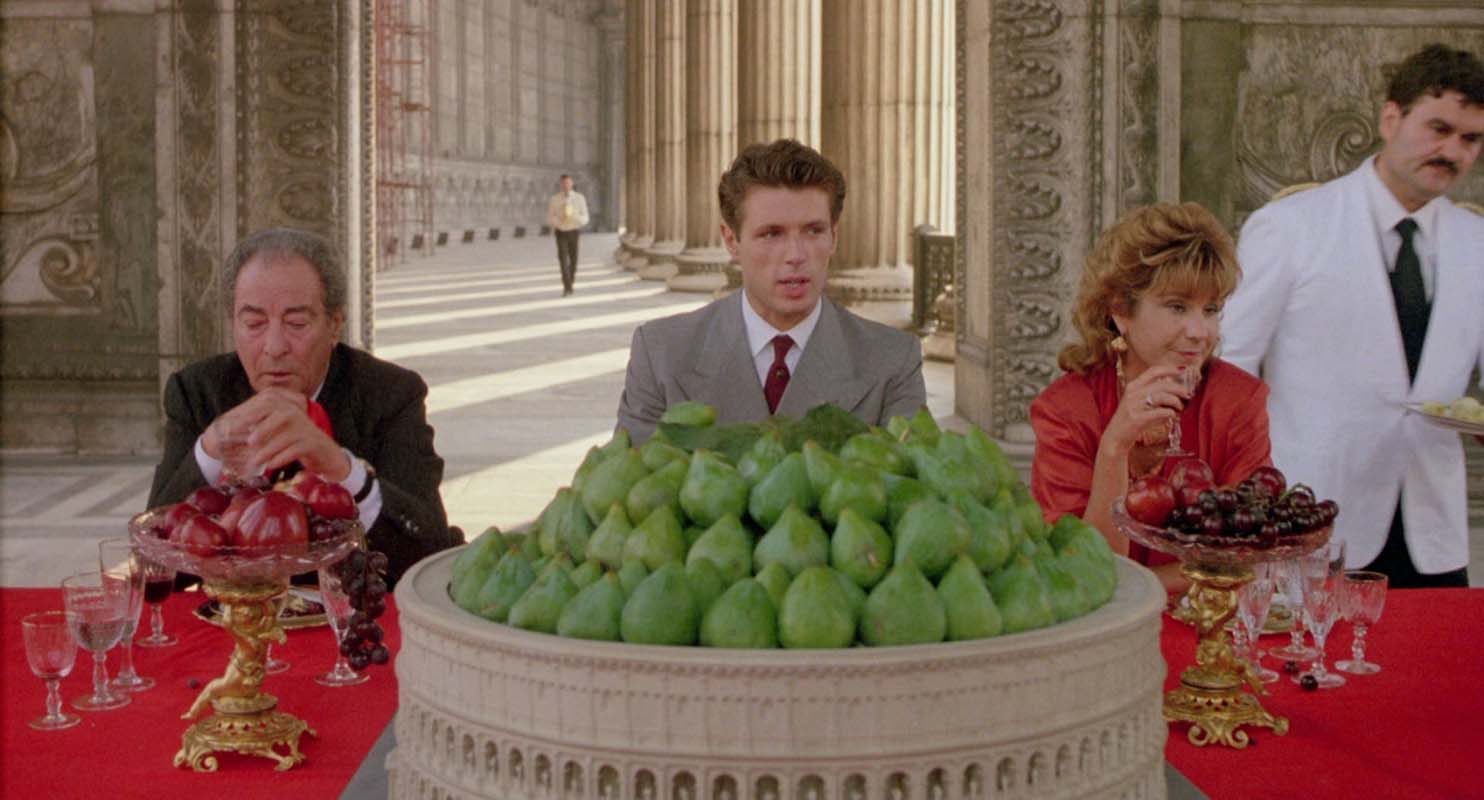
Scene from The Belly of an Architect by Peter Greenaway, 1987: view of the eastern propylaeum with the central portico in the background
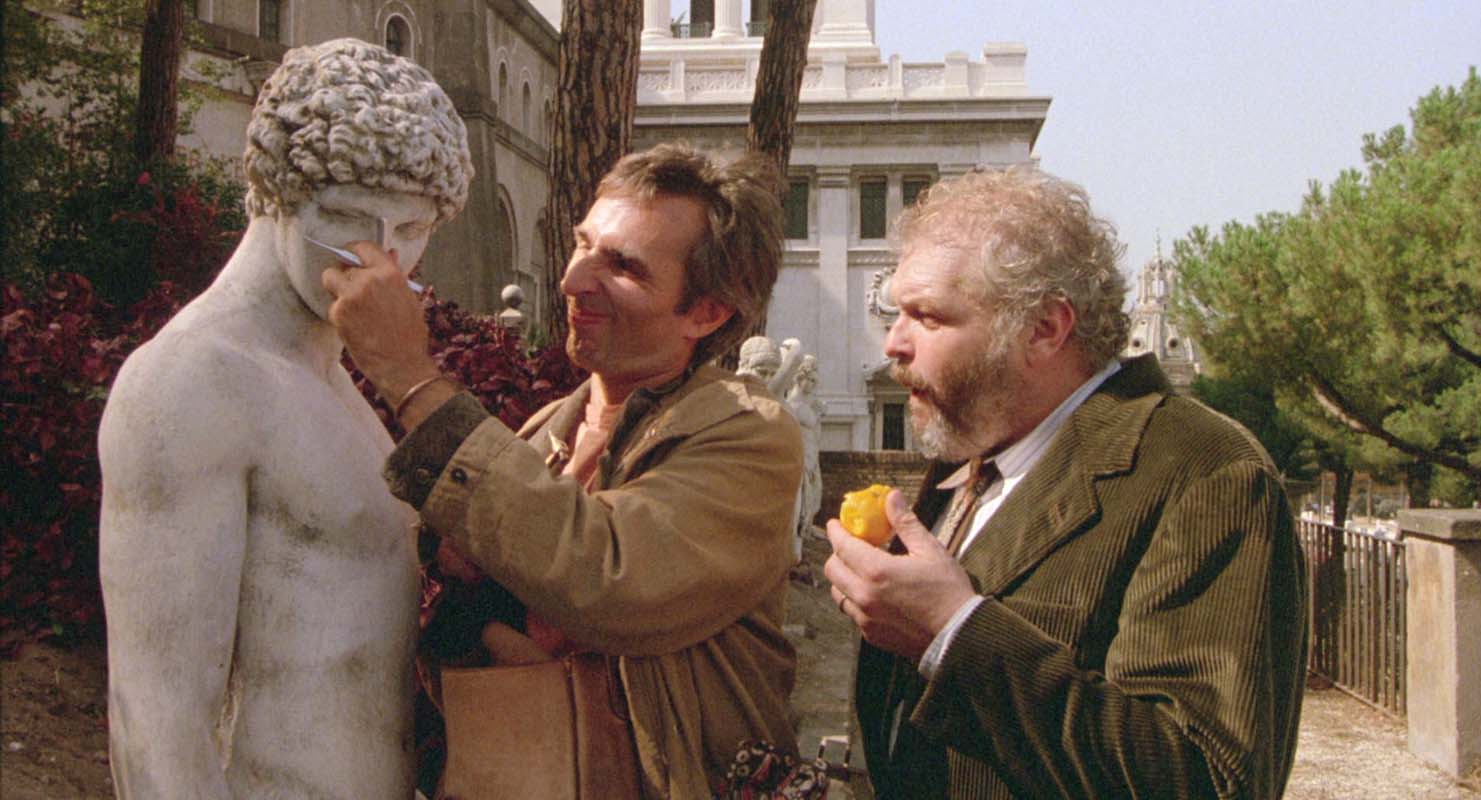
Scene from The Belly of an Architect by Peter Greenaway, 1987: the eastern side of the Vittoriano, called the Imperial Fora Wing or the Brasini Wing, can be seen in the background
In the same period, there was a marked awakening of interest also in the field of studies. Two full-bodied volumes published between 1986 and 1988 on the initiative of the Superintendency for Environmental and Architectural Heritage of Rome underlined the architectural and artistic qualities of the Vittoriano. This sensitivity extended to the field of history, thanks to the two monographs released in 1998: the book by Catherine Brice, in particular, placed the monument at the heart of the Italian and European debate of the time, as the result of competition between the various emerging nationalisms.
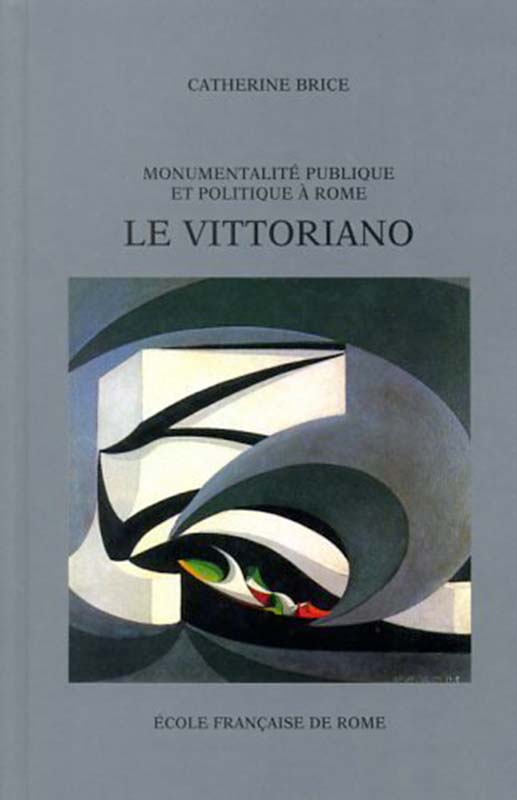
Monumentalité publique et politique à Rome. Le Vittoriano by Catherine Brice, published in 1998
The many years of negative criticism had left their mark on the monument, whose state of conservation was serious. Damages caused by neglect were now added to the problems reported from the time of construction, the structural injuries and the water infiltrations. In view of the Jubilee of the year 2000, a restoration campaign was set up. The 10 billion lire then allocated by the Italian State were used for localised waterproofing interventions, especially in the left propylaeum, for the treatment of the Botticino marble surfaces which had faded over time, for restoring the sculptural groups and for implementing safety measures for the 100 works of art in the plaster casts gallery.
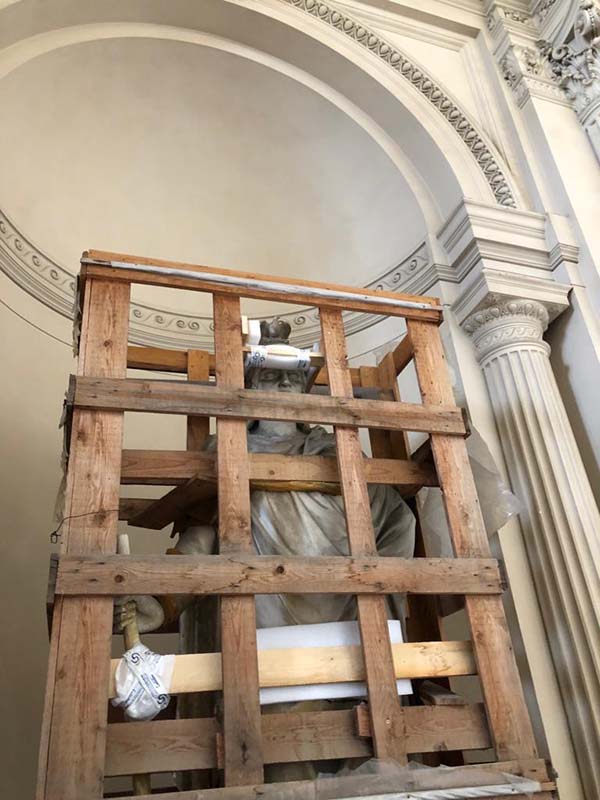
The monument once again became a part of the lives of citizens and tourists because of the will of Carlo Azeglio Ciampi (1999-2006). The President of the Republic made it a pillar of his policy of national pacification, based on the re-appropriation of places and symbols of the history of the fatherland. At the end of the restoration works, the Vittoriano opened its doors to the public on 24th September 2000, on the occasion of the opening ceremony of the school year. Since then, all the presidents have paid special care and attention to the monument.
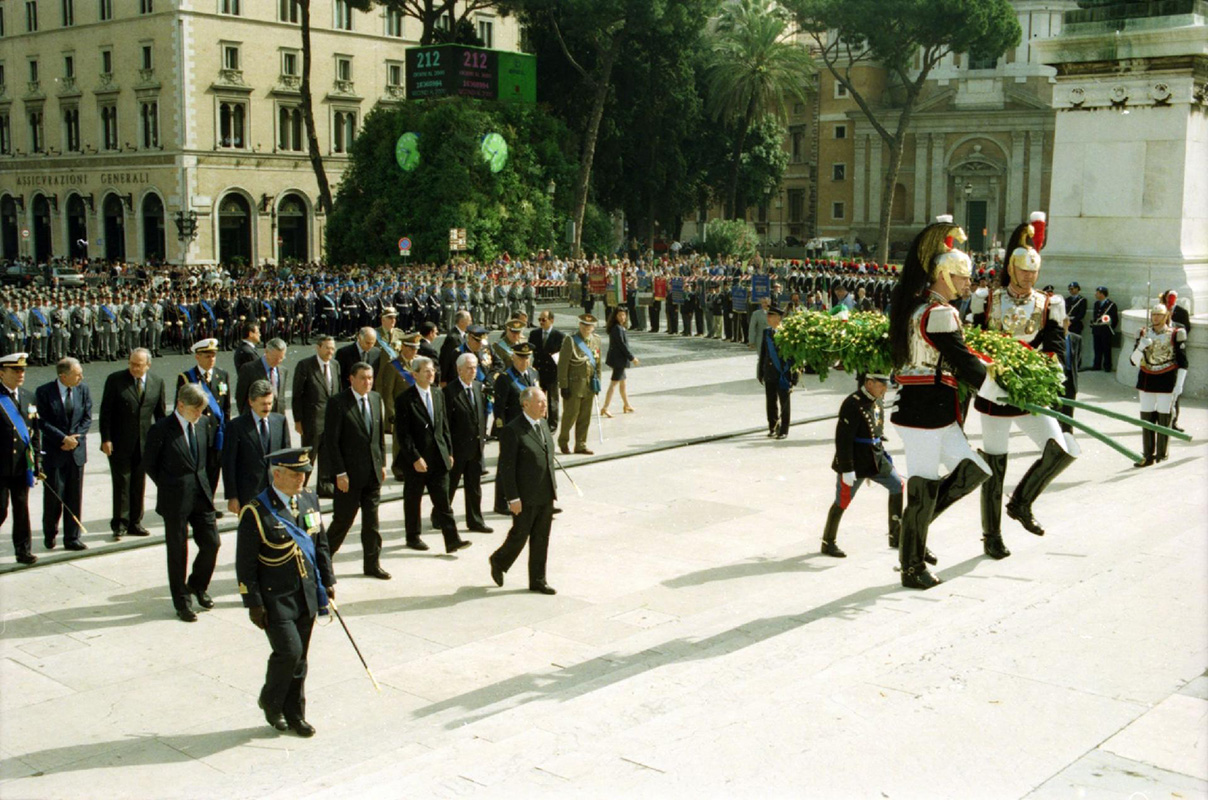
Then President of Italy Carlo Azeglio Ciampi during the laying of a laurel wreath on the Tomb of the Unknown Soldier to celebrate Italy's Republic Day on 2 June 1999
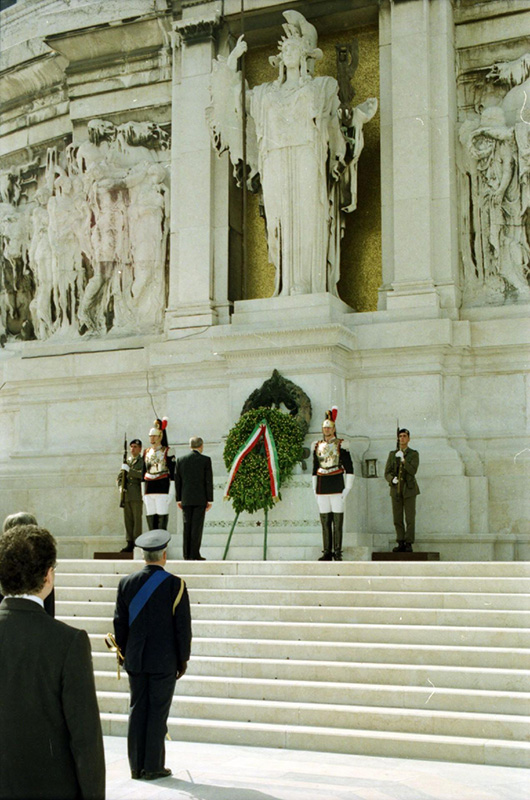
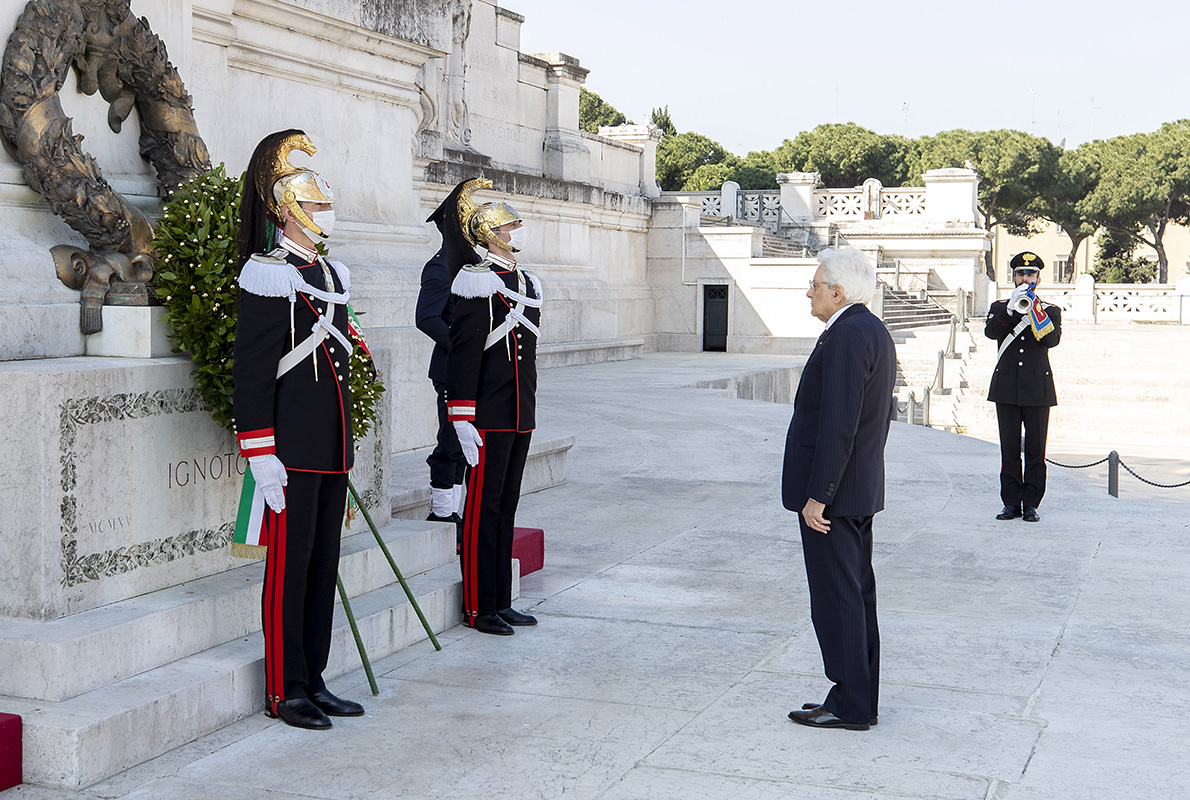
President of Italy Sergio Mattarella during the laying of a laurel wreath on the Tomb of the Unknown Soldier to celebrate the 75th Italian Liberation Day
The restoration campaign for the Jubilee had solved only part of the many problems that plagued the complex. In 2006, therefore, a new restoration and enhancement project was launched. In addition to consolidating the structures and to restoring the external surfaces, the project aimed to make the Vittoriano more accessible to the public. Several efforts were made to remove the architectural barriers, a crucial problem in a monument basically consisting of stairs and slopes. A considerable portion of the public pushed to reach the Panoramic Terrace: the Terrace, located at the top of the monument, until then was only accessible through two narrow and dangerous spiral staircases. At the end of a long debate, the choice fell on two large lifts, located on the rear side of the monument, in the Terrazza Italia.
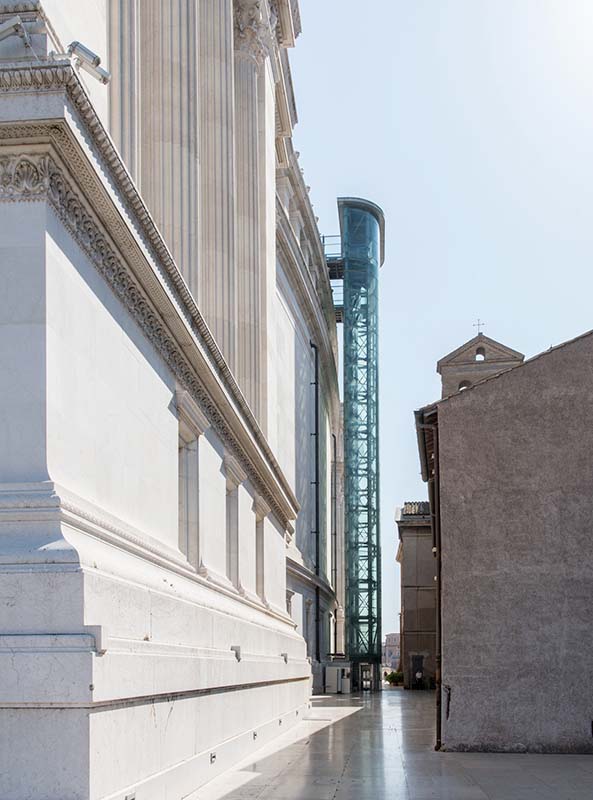
The panoramic lifts on the exterior of the Vittoriano which make it possible to reach Terrazza Italia
Between 2015 and 2020 the Vittoriano was managed by the Ministry of Cultural Heritage and Activities through the Museum Centre of Lazio. Exploiting the momentum gained at the end of the nineties of the twentieth century, the Museum Centre continued along the route of restoration and enhancement, placing the constantly growing and increasingly demanding public at the centre of its museology operations. Here we have, then, a unitary and homogeneous tour, able to logically connect spaces that until then had often remained closed; a dense program of educational, cultural and artistic initiatives; finally, a modern internal and external communication line, conceived in analogue and digital mode, thanks to a website and an app.
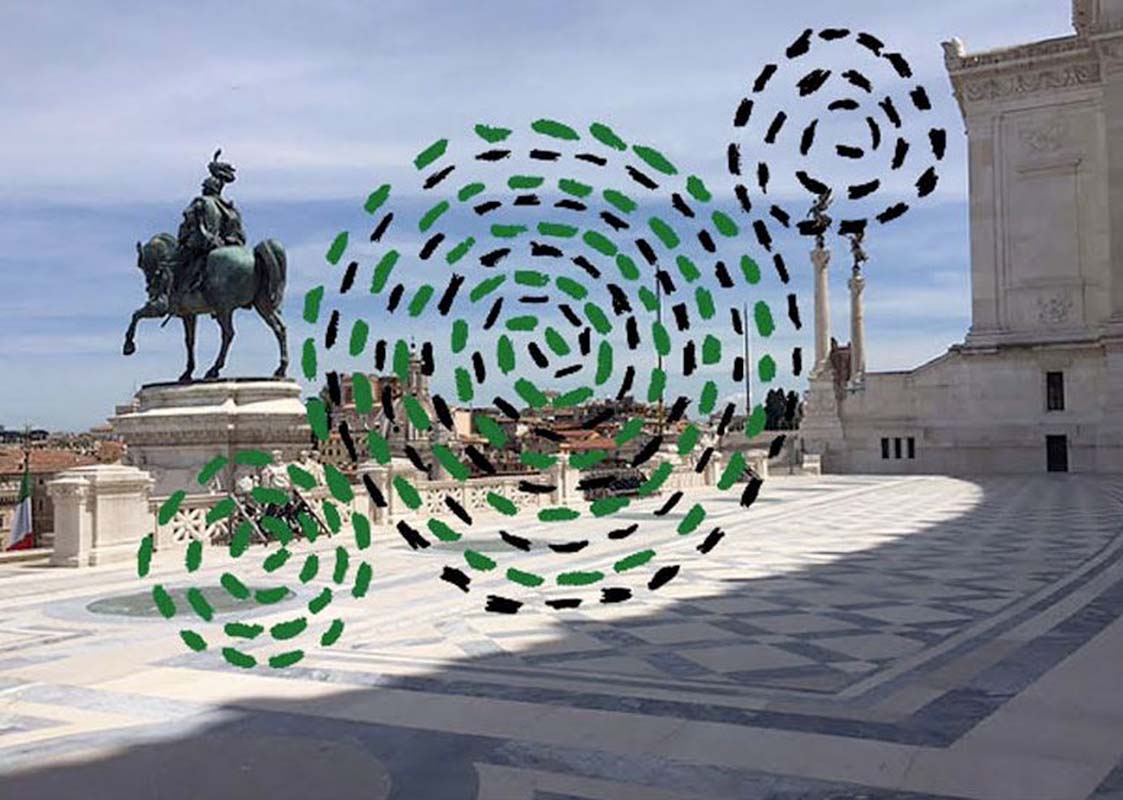
Logo by Michelangelo Pistoletto to celebrate the conclusive meeting of the Work-Study Alternation project for 2015-2016
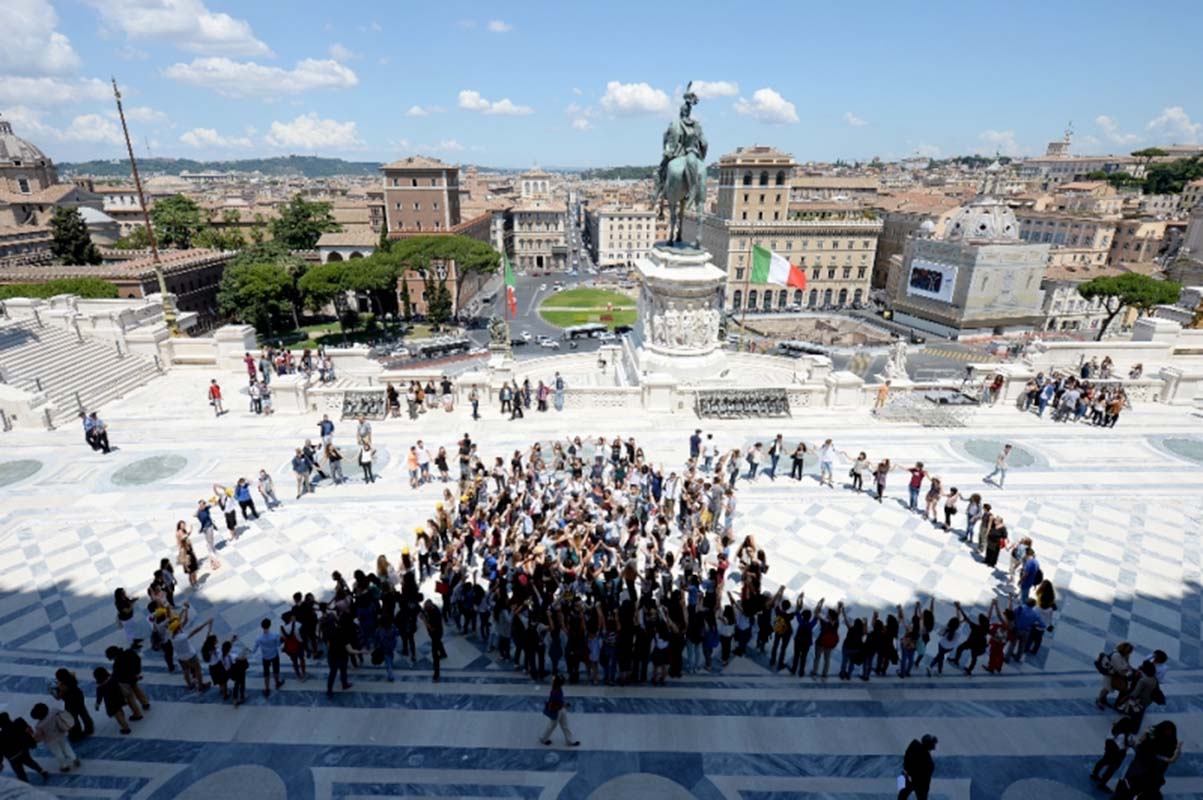
Performance of Rebirth. The Third Paradise by Michelangelo Pistoletto in Piazzale del Bollettino, the Vittoriano, 2016
This work received immediate feedback. The five years of the Museum Centre coincide with a further and in some ways impressive growth of the public: visitors, which were 800,000 in 2015, exceeded the threshold of three million in 2019 , thus making the Vittoriano one of the most successful monuments in Italy. Of these three million, still in 2019 approximately 500,000 decided to access the Panoramic Terrace, generating an income of approximately 3 million Euro, entirely devoted to restoration and maintenance.
Italian President Sergio Mattarella visiting the exhibition titled Lessico Italiano, Volti e Storie del Nostro Paese (Italian Lexicon, Faces and Stories from Italy) at the Vittoriano, 2019
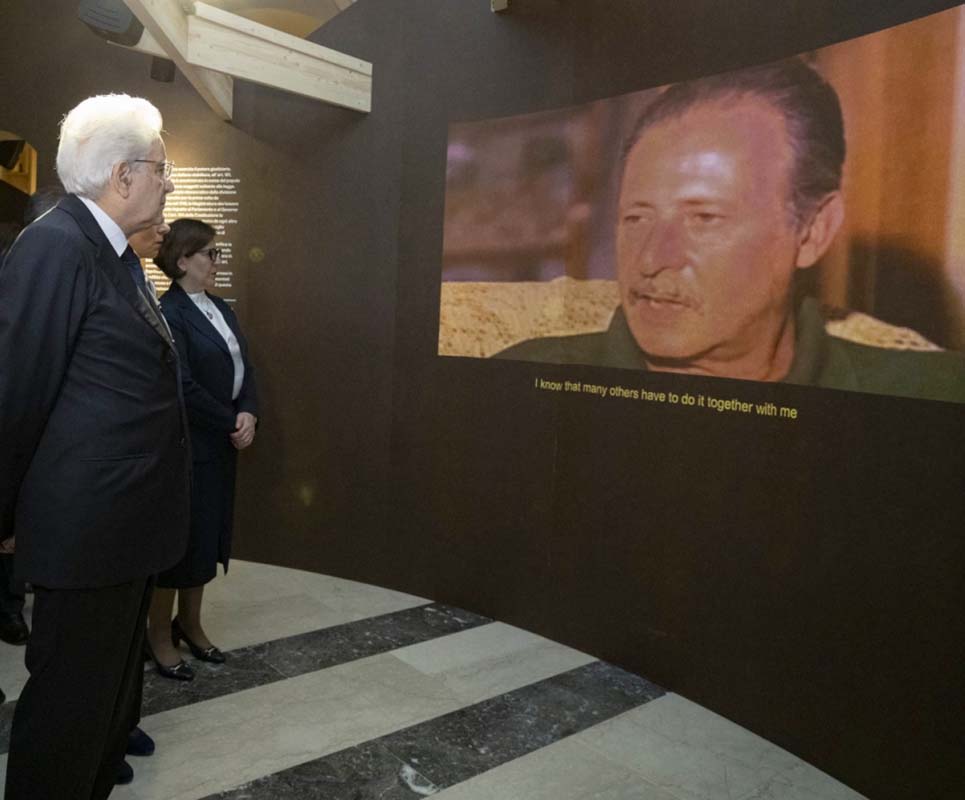
On 2nd November 2020, the Vittoriano entered a new phase of its history. Together with Palazzo Venezia, it has become part of a museum institute with special autonomy - the Vittoriano and Palazzo Venezia (VIVE) - led by a director general of the Ministry of Culture. Once the works on the underground line “C” have been completed, it will also be physically connected to Palazzo Venezia through the station in Piazza Venezia.
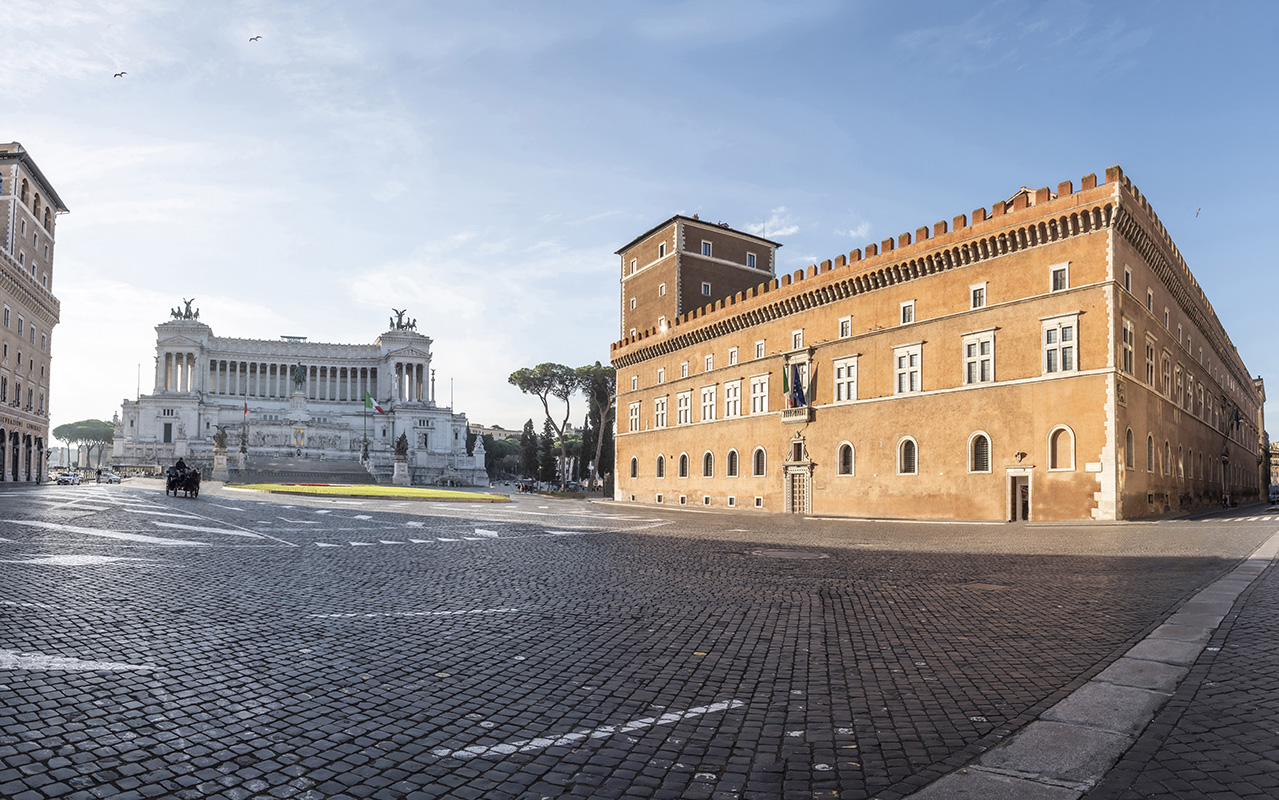
View of the complex of buildings that makes up VIVE, the Independent Institute of the Vittoriano and Palazzo Venezia
In the new dimension of VIVE, the Vittoriano intends to reaffirm its role as a symbol of the Republic which maintains unaltered its original values of unity and independence, and which on these values seamlessly grafts the values of today’s Italy, the Italy of the Constitution of 1948 and the Treaties of Rome of 1957, a republican, democratic and European Italy.
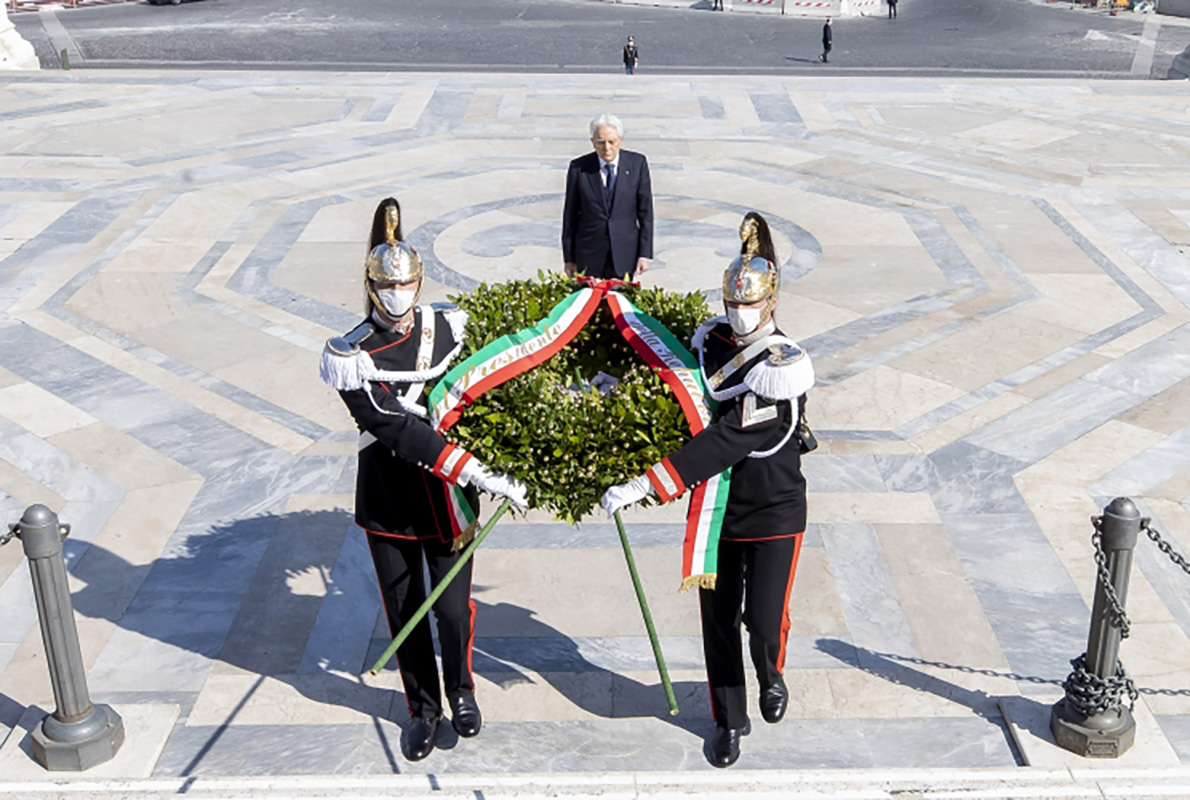
President of Italy Sergio Mattarella during the laying of a laurel wreath on the Tomb of the Unknown Soldier to celebrate the 75th Italian Liberation Day